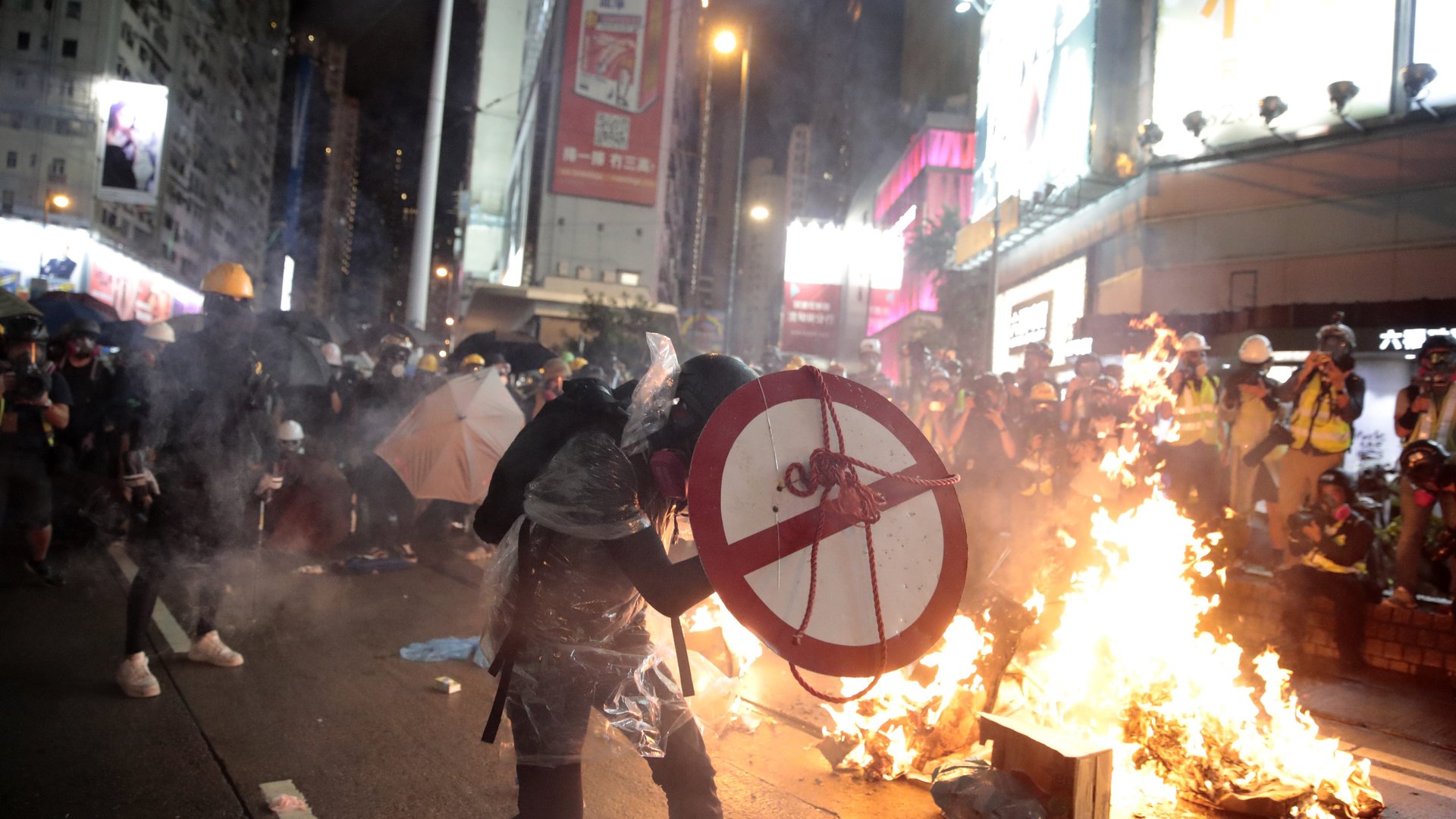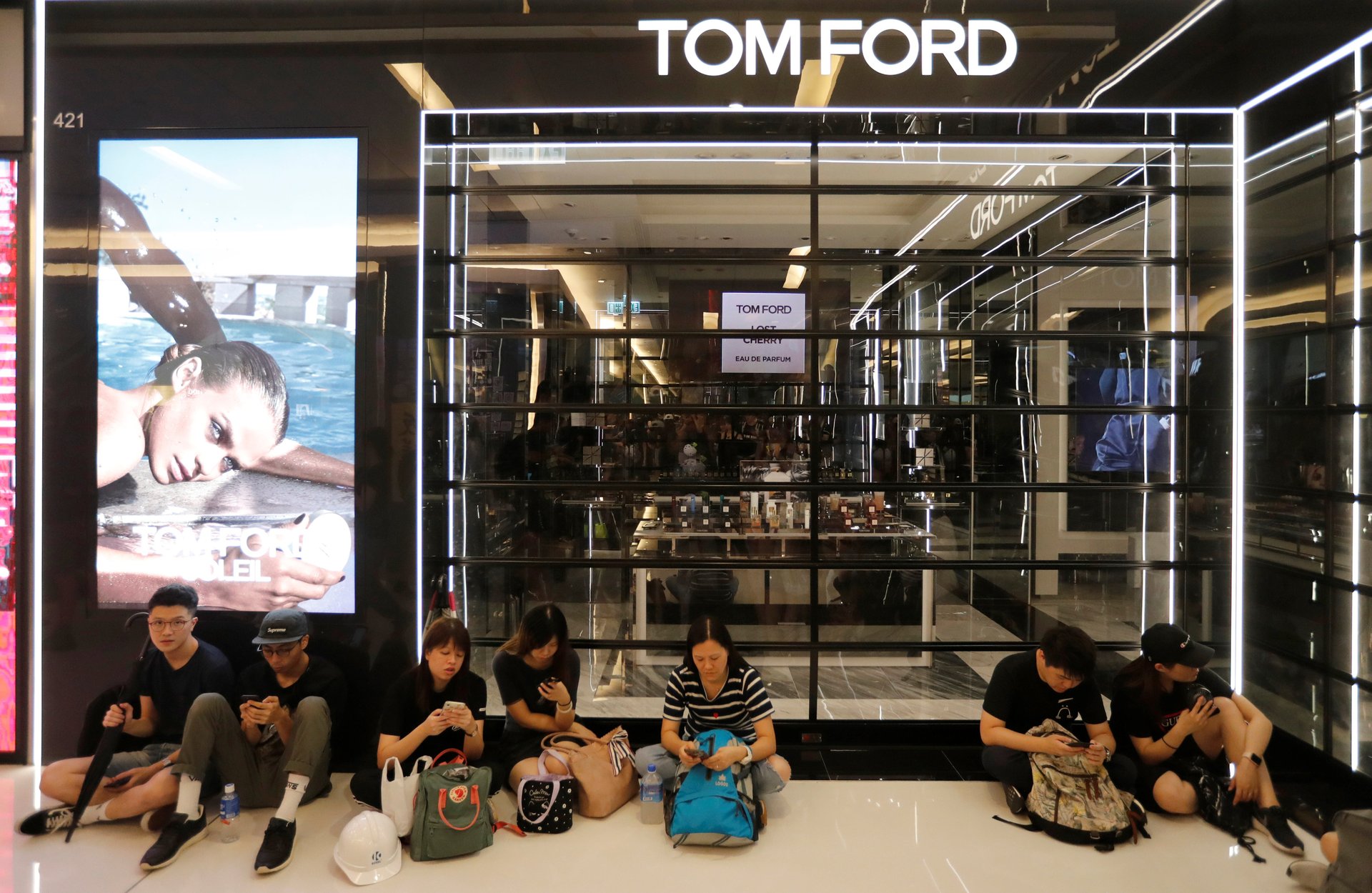The world’s most expensive retail playground is suffering
Hong Kong is one of the top shopping destinations in the world, a dense cluster of malls where locals, mainland Chinese, and tourists from all over travel to browse and buy fashion, jewelry, electronics, cosmetics, and more. In the hyper-frenetic shopping district of Causeway Bay, where signs flash the logos of major international brands and luxury labels draw in wealthy clientele, rents on the main drag were the most expensive in the world in 2018, topping New York’s Fifth Avenue and London’s New Bond Street.


Hong Kong is one of the top shopping destinations in the world, a dense cluster of malls where locals, mainland Chinese, and tourists from all over travel to browse and buy fashion, jewelry, electronics, cosmetics, and more. In the hyper-frenetic shopping district of Causeway Bay, where signs flash the logos of major international brands and luxury labels draw in wealthy clientele, rents on the main drag were the most expensive in the world in 2018, topping New York’s Fifth Avenue and London’s New Bond Street.
But throughout 2018, Hong Kong’s retail sales growth slowed. In February of this year, even before pro-democracy protests spread throughout the city, sales plunged. The losses have continued since. In July—the first full month to register the effects of the protests—the decline accelerated, as retail sales plummeted 11.4%, the steepest drop in more than three years.
The situation is pronounced enough that the Hong Kong Retail Management Association (HKRMA) recently called for landlords to halve rents (link in Chinese) for a period of six months. The request has so far gone unheeded, Annie Yau Tse, chairwoman of the Hong Kong Retail Management Association and CEO of Tse Sui Luen Jewellery, told Nikkei.
The decline in sales stems from a mix of factors. “The ongoing Sino-US trade dispute, equity market turbulence, and volatility of renminbi continue to cast a long shadow on consumers’ sentiment and actual spending,” Michael Cheng, Asia-Pacific consumer markets leader at PricewaterhouseCoopers (PwC), an international auditing and consulting firm, recently told the South China Morning Post.
In the important luxury sector, mainland Chinese shoppers have also been making more of their purchases at home rather than in Hong Kong, where that spending often happened in the past (paywall). Consultancy Bain & Company has noted that the outlook for the luxury market in Asia is positive, especially China—”apart from Hong Kong and Macau.”
Against this backdrop, the protests are adding pressure. On the weekends, malls and shopping areas such as Causeway Bay have become battlegrounds, forcing stores to close. It means not only missed sales but loss of hourly workers’ take-home income, which they may have spent at other retailers.
Even though the city is generally still safe for visitors and life continues on despite the protests, tourism has also taken a blow. It’s an important piece of the Hong Kong economy, accounting for about 5% of its GDP. In July, the city’s tourism board logged 4.8% fewer visitors (pdf) versus the prior year. The drop was even more significant among arrivals from mainland China, who made up 80% of Hong Kong’s visitors in the period.
These trends are set to continue in the August numbers once they’re reported. As it happens, July and August are peak season for Hong Kong retail, the HKRMA noted in a statement (pdf) about the protests’ effects. It revised its previous forecast of single-digit growth for Hong Kong retail to a double-digit decline for the full year.
JPMorgan has separately predicted that the unrest could cause retail sales to fall by as much as 30%. Concerns about a recession are now growing.
For international brands, and especially luxury labels, the scenario is not ideal. Hong Kong is an important source of sales. As Business of Fashion reported (paywall), investment firm UBS has estimated that Richemont gets 11% of its sales in Hong Kong, Swatch about 10%, and Burberry approximately 9%. Other companies at risk included Hermès, Moncler, Prada, and more.

For many Hong Kong residents, however, there are more pressing concerns. One protester who was part of the group that shut down the international airport told Time, “I always think that the freedom is much more important than the economy.”
Hong Kong’s chief executive, Carrie Lam, has now announced that she will withdraw the extradition bill that first sparked the protests. The move prompted luxury stocks to jump at news that some relief might be on its way. But it isn’t likely to be enough to pacify most of the protesters, who have called for an independent investigation of alleged police misconduct and seized on the moment to demand free elections. Even if it did, it would take time for the tourists to come back and spending to pick up.
Retail in the city has proved resilient before; Hong Kong won’t suddenly cease being a shopping playground. But for now, retailers will have to find ways to weather the turmoil.